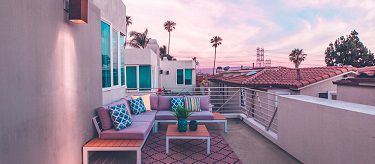Financial literacy 101: home ownership
In part two of our three-part series on financial literacy, we want to help break down some common questions about home ownership.
There’s a lot to wrap your head around when it comes to your finances, but a good understanding of some basic financial concepts can really take you a long way. While Canadians received high scores when their financial knowledge was tested, many still lack confidence in their skills. In part two of our three-part series on financial literacy, we want to help break down some common questions about home ownership.
What do some people overlook when getting a mortgage?
You may spend so much time thinking how much can I afford? or what will my mortgage payments be? that you overlook many of other costs that come with actually having a mortgage. Here are some of the additional costs you can expect:
Closing costs:
- Mortgage insurance: calculated as a percentage of your loan, based on the size of your down payment. Use this mortgage insurance calculator to see what your mortgage insurance will be.
- Home inspection: plan to spend $200 to $400
- Property survey: plan to spend $750 to $1,500
- Legal costs: plan to spend $1,500 to $2,000, plus 200 to $300 for optional title insurance.
- Land transfer tax: the city or province will set their land transfer tax rate. This land transfer tax calculator will show what land transfer tax will be. If you’re buying your first home, your province may actually rebate the transfer tax.
- Replacements and repairs: it’s a good idea to budget $1000 to $2000 for repairs, replacements, and updates including light bulbs, locks, and even paint.
- Moving: budget at least $1,500 if you hire a moving company, or you can save some cash if you enlist your friends to help you move.
Ongoing costs:
- Home insurance: cost depends on where you live, but Canadians pay an average of $840 annually
- Condo fees: cost is calculated based on square feet and can cost upwards of $0.50/sq ft.
What’s the difference between variable and fixed mortgages? How do I know which one to pick?
A variable-rate mortgage has an interest rate that changes along with the prime rate, and is generally an open term (there is a 5 year closed variable term that allows you to have the flexibility of a variable product at a lower rate, there is a penalty to pay this out prior to the end of term, but you can fix the rate into a 3 year fixed term or greater at no cost).
A fixed-rate mortgage will lock your rate in for the term chosen and there is a penalty to break this term prior to maturity.
The best option really depends on the person. If you're the type to worry about rates going up, then you're probably better to lock into a fixed term so you know the rate you'll have for the duration of your mortgage term. If you want to try to get a lower variable rate, or want an open term if you're uncertain of your future plans and do not want to have to pay a penalty in the future, then a variable might be a better option.
How can I pay off my mortgage faster?
One of the easiest ways to pay off your mortgage faster is by simply living within your means. Don’t rely on your line of credit for everyday expenses, otherwise you’ll never pay it off. If your goal is to be mortgage-free as quickly as possible, you’ll have to refrain from frivolous spending and put extra money towards your mortgage. An easy way contribute more is by rounding up your payments.
For example, on a $100,000 mortgage over 25 years, if your biweekly payment is $215, and you round up to $220, you'll save about $1540 in interest and shave a year off your mortgage amortization (based on a 5 year fixed term at 2.89%). This small change can make a big difference.
When you buy a home, mortgage-freedom can often seem like a distant destination. But, what if you could get there faster and save thousands in interest along the way? Here’s how Manulife One can help you reach mortgage-freedom sooner.
To learn more about getting a mortgage and paying it off faster, work with a local advisor to build a personalized plan of action.
---
This article is for information purposes only and is not intended to provide specific tax or other advice and should not be relied upon in that regard. Individuals should seek the advice of qualified professionals to ensure that any action taken with respect to this information is appropriate to their specific situation.


